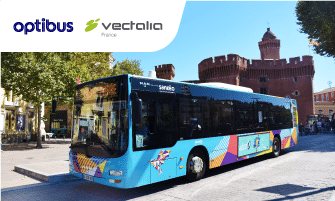For decades, the UK's bus market, outside of the renowned London network, has stagnated under deregulation. What was initially designed to foster a competitive environment among private operators has led to monopoly and dwindling passenger numbers. This competitive landscape has not been without its drawbacks, with fragmented networks, inconsistent fares, and unreliable services becoming points of concern for passengers across the nation. The potential solution? Franchising.

While the concept of franchising — where public authorities plan routes and fares, and private companies bid to operate services — promises a unified and efficient public transport network, it is not without its challenges. The complexity and financial implications of transitioning to a franchised model can be daunting. Critics argue that it might stifle innovation and place financial burdens on public authorities, as evidenced by the financial strains that Transport for London experienced during the pandemic.
The role of franchising and technological innovation
Franchising, despite its challenges, presents an exciting opportunity to redefine public transportation in the UK. Drawing inspiration from the successful integration seen in London and Manchester as well as international examples like Sweden, franchising can improve passenger satisfaction through enhanced service quality. Authorities can also ensure services are designed to deliver societal objectives providing transportation options to the communities that need them most instead of what is most profitable. The recent empowerment of Mayoral Combined Authorities in England and Transport Partnerships in Scotland (through the Bus Services Act 2017 and the Transport (Scotland) Act 2019 respectively) to introduce franchising schemes is a testament to the growing momentum behind this transformative approach.
In this evolving landscape, Optibus can help to bring clarity and provide answers to complex challenges. By leveraging cutting-edge planning and scheduling software, Optibus can aid the design of an efficient network that meets political and societal objectives. Our work with Transport for Wales - currently the UK’s most ambitious franchising scheme outside London underscores our capability to support the transition towards a franchised model, helping authorities to build a business case for franchising and delivering modal shift through the use of innovative technology.
The adoption of bus franchising, supported by technology solutions like Optibus, promises a myriad of benefits for all stakeholders involved. For public transport networks, it means more integrated services and simplified fare systems, leading to a seamless passenger experience. Authorities gain the ability to directly influence the quality and connectivity of bus services, addressing community needs more effectively. For operators, while the competitive landscape shifts, the emphasis on operational efficiency and service quality opens new avenues for innovation within the parameters set by franchising agreements.
Optibus: Steering the future of UK public transport through strategic bus franchising
The path towards bus franchising in the UK is paved with both opportunities and challenges. However, with strategic planning, the right technological tools, and a collaborative approach between public authorities and private operators, franchising has the potential to usher in a new era of public transportation. At Optibus, we are committed to driving this transformation, ensuring that the future of UK buses is efficient, reliable, and aligned with the needs of the communities they serve. Together, we can achieve a sustainable, integrated, and passenger-focused public transportation system. Book your tailored demo now and see what Optibus can do for you.







